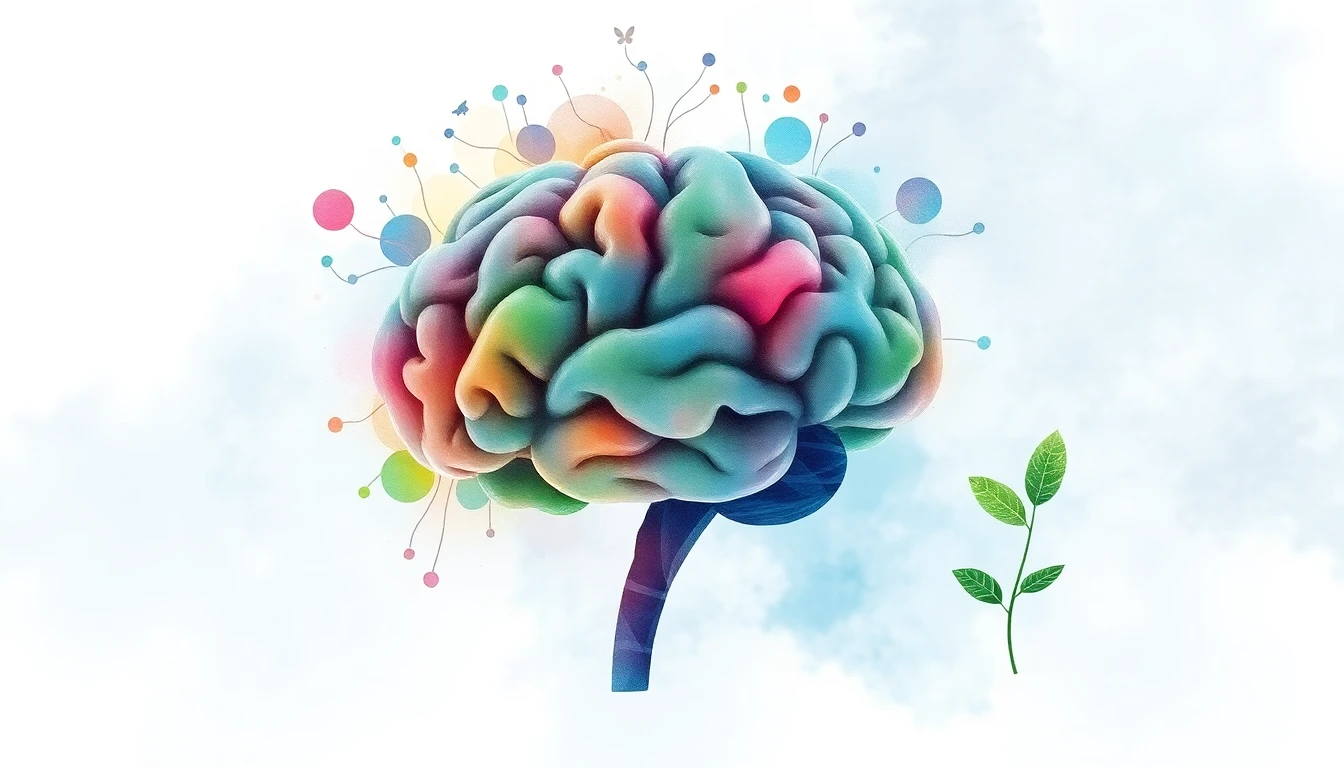
Have you ever caught yourself thinking, “I’m just not good at this,” or “I’ll never be able to learn that”? If so, you’re not alone. For years, I believed that talent was something you were born with, and if you didn’t have it, tough luck. But then I discovered the power of a growth mindset—and it changed everything. If you’re wondering how to develop a growth mindset and truly unlock your potential, you’re in the right place.
In this guide, I’ll share practical steps, real-life stories, and expert-backed growth mindset strategies that anyone can use. Whether you’re a student, a professional, or just someone who wants to improve, you’ll find actionable ways to develop a growth mindset and start seeing challenges as opportunities. Let’s dive in!
Fixed vs Growth Mindset: What’s the Real Difference?
Before we get into how to build a growth mindset, it’s important to understand the difference between a fixed and growth mindset. This is the foundation for all personal development.
A fixed mindset is the belief that your abilities, intelligence, and talents are set in stone. People with a fixed mindset often avoid challenges, give up easily, and see effort as pointless. On the other hand, a growth mindset is the belief that you can develop your abilities through dedication, learning, and hard work. People with a growth mindset embrace challenges, persist through setbacks, and see effort as the path to mastery.
- Fixed Mindset: “I can’t do this,” “I’m not smart enough,” “If I fail, I’m a failure.”
- Growth Mindset: “I can learn this,” “With practice, I’ll get better,” “Mistakes help me grow.”
If you’re curious about your own mindset, try this growth mindset quiz to see where you stand.
Why Should You Care About Developing a Growth Mindset?

So, can growth mindset be learned? Absolutely! I’m living proof, and so are millions of others. Adopting a growth mindset isn’t just about feeling good—it’s about real, measurable change in your life. Here’s why it matters:
- Resilience: You bounce back from setbacks and see failures as learning opportunities.
- Continuous Learning: You’re always looking for ways to improve your mindset and skills.
- Motivation: You’re driven by curiosity and growth, not just by proving yourself.
- Better Relationships: You celebrate others’ success and learn from them, instead of feeling threatened.
- Greater Success: You’re more likely to achieve your goals because you don’t give up easily.
Once you start to adopt a growth mindset, you’ll notice that life’s challenges become stepping stones instead of roadblocks.
How to Develop a Growth Mindset: 5 Proven Ways

If you’re asking, “What are 5 ways to develop a growth mindset?”—here are the steps that have worked for me and countless others. These are not just theories; they’re practical, everyday habits you can start right now.
1. Embrace Challenges and Setbacks

One of the best tips for growth mindset is to see challenges as opportunities, not threats. I used to avoid anything that felt too hard, but now I remind myself, “This is how I grow.” Next time you face a tough situation, pause and ask, “What can I learn from this?” Even if you stumble, you’ll come out stronger.
How to Reframe Your Thinking
- Notice negative self-talk for growth mindset, like “I’ll never get this.”
- Challenge it: “Is that really true, or am I just scared?”
- Reframe: “Even if I struggle, I’ll learn something valuable.”
2. Cultivate a Love of Learning

People with a growth mindset are always curious. I make it a point to read a new book every month or take an online course just for fun. You don’t have to become an expert overnight—just keep exploring. Try cooking a new recipe, learning a few words in another language, or picking up a hobby you’ve always wanted to try. This is one of the most enjoyable ways to develop a growth mindset.
Ideas to Spark Your Curiosity
- Sign up for a free online course (Coursera, Udemy, edX).
- Read a book outside your usual genre.
- Attend a workshop or seminar in your community.
- Ask friends to teach you something they’re good at.
3. Value the Process Over the Outcome
It’s easy to get obsessed with results, but real growth happens in the process. When I was learning to play guitar, I was terrible at first. But I kept practicing, and slowly, I improved. Celebrate your small wins and focus on how far you’ve come, not just where you want to be. This is a key part of how to improve your mindset.
How to Focus on Progress
- Keep a journal of your daily efforts and improvements.
- Celebrate small achievements, even if they seem minor.
- When you make mistakes, see them as stepping stones, not failures.
If you ever feel stuck, reach out for support—asking for help is a sign of strength, not weakness.
4. Learn from Feedback and Criticism
I’ll be honest—criticism used to sting. But now, I see it as a shortcut to improvement. When someone gives you feedback, listen carefully and ask yourself, “How can I use this to get better?” The best athletes, artists, and leaders all have coaches or mentors who push them to grow. This is one of the most effective growth mindset strategies.
How to Embrace Feedback
- Ask for feedback from teachers, managers, or friends.
- Thank people for their honesty, even if it’s hard to hear.
- Don’t get defensive—see feedback as a gift.
- Use what you learn to set new goals for yourself.
5. Find Inspiration in Others’ Success

I used to feel jealous when I saw others succeed. Now, I try to learn from them. If a colleague gets promoted, I ask them what worked for them. If a friend masters a new skill, I ask for tips. Their success doesn’t take away from yours—it shows what’s possible. This is a powerful way to adopt a growth mindset in your daily life.
How to Get Inspired by Others
- Read biographies of people you admire.
- Follow mentors or thought leaders online.
- Attend talks or webinars to hear real stories of growth.
- Apply their strategies to your own life.
Brain Plasticity and Mindset: The Science Behind Growth

This isn’t just a feel-good idea—science backs it up. Our brains are designed to change and grow, a concept called brain plasticity or neuroplasticity. Every time you learn something new or practice a skill, your brain forms new connections. That means you’re never stuck—you can always improve. Neuroplasticity and learning go hand in hand, making it possible to train your brain for a growth mindset at any age.
How do you train your brain for growth mindset?
- Learn new skills (languages, music, sports, etc.).
- Play brain games or puzzles.
- Practice mindfulness and meditation.
- Exercise regularly and get enough sleep.
Common Obstacles (and How to Overcome Them)

Fear of Failure
Everyone feels afraid of failing sometimes. I used to worry, “What if I mess up?” But now, I see failure as a teacher. When you fail, ask yourself, “What did I learn?” and “How can I do better next time?” Every mistake is a step forward if you learn from it.
Dealing with Negative Self-Talk
Sometimes, our biggest critic is the voice in our own head. If you catch yourself thinking, “I’m not good enough,” challenge that thought. Replace it with something positive, like “I’m learning and getting better every day.” Try using positive affirmations to shift your mindset.
Growth Mindset Habits: Daily Practices for Lasting Change
Journaling and Reflection
Take five minutes each day to write about what you learned, what challenged you, and what you’re grateful for. This simple habit helps you see your progress and keeps you motivated. These are the kind of growth mindset habits that make a real difference over time.
- What did I try today that was new or difficult?
- What did I learn from my experiences?
- What progress am I proud of?
Positive Affirmations and Self-Talk for Growth Mindset
Start your day with a few positive statements, like “I am always learning and growing” or “I can handle whatever comes my way.” Repeat them whenever you need a boost. This kind of self-talk for growth mindset can rewire your brain over time.
Recommended Resources for Further Learning
Books and Articles
- Mindset: The New Psychology of Success by Carol S. Dweck
- Grit: The Power of Passion and Perseverance by Angela Duckworth
- How to Help Your Child Develop a Growth Mindset by Carol S. Dweck (article)
Online Courses and Communities
- Coursera: Growth mindset and personal development courses
- Udemy: Mindset and self-improvement classes
- Mindset Works: Resources for individuals, parents, and educators
Conclusion: Start Your Growth Mindset Journey Today
Learning how to develop a growth mindset is a lifelong journey, not a one-time event. By embracing challenges, valuing effort, learning from feedback, and finding inspiration in others, you’ll unlock new levels of potential in every area of your life.
Remember, it’s not about being perfect—it’s about making progress. Start small, stay curious, and keep moving forward. Your future self will thank you for every step you take today.
Frequently Asked Questions (FAQs)
How can I develop a growth mindset?
Embrace challenges, value the learning process, seek feedback, stay curious, and use positive self-talk. Practice these habits daily to reinforce your growth mindset.
What are 5 ways to develop a growth mindset?
1) Embrace challenges, 2) Cultivate a love of learning, 3) Value the process, 4) Learn from feedback, and 5) Find inspiration in others’ success.
Can growth mindset be learned?
Yes! Anyone can learn and adopt a growth mindset with practice, self-awareness, and the right strategies.
What are growth mindset habits?
Growth mindset habits include journaling, positive self-talk, seeking feedback, celebrating progress, and staying curious.
How do you train your brain for growth mindset?
By challenging yourself with new skills, practicing mindfulness, using positive affirmations, and embracing neuroplasticity and learning.
What is the difference between fixed vs growth mindset?
A fixed mindset believes abilities are unchangeable, while a growth mindset believes you can improve with effort and learning.
How does brain plasticity and mindset connect?
Brain plasticity means your brain can change and grow throughout your life, supporting the idea that you can always learn new things and develop new skills.
